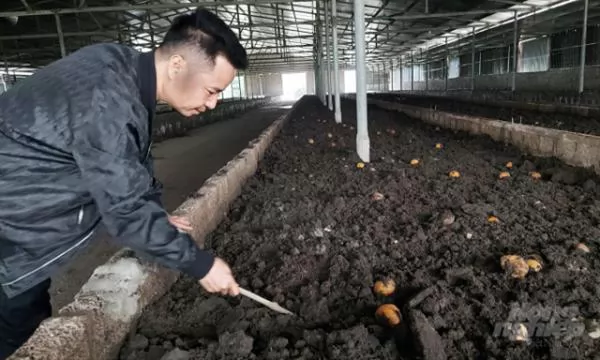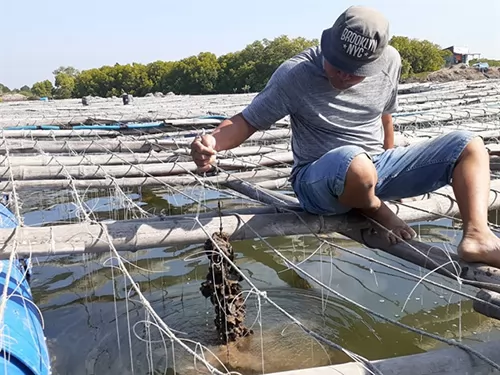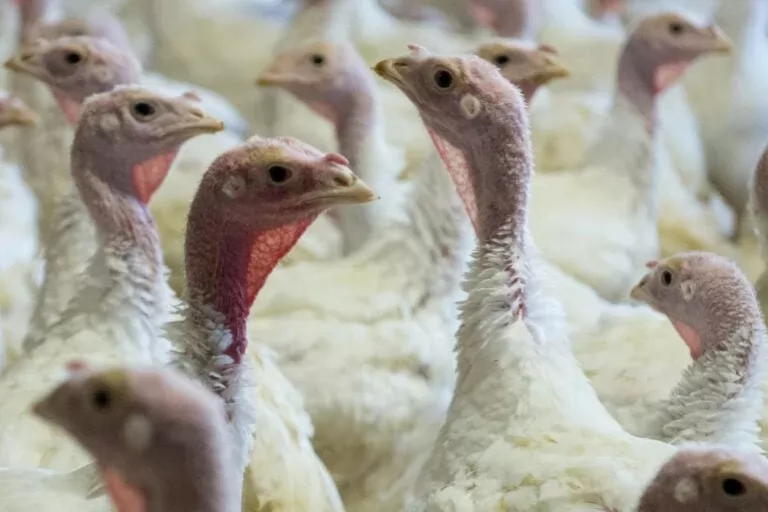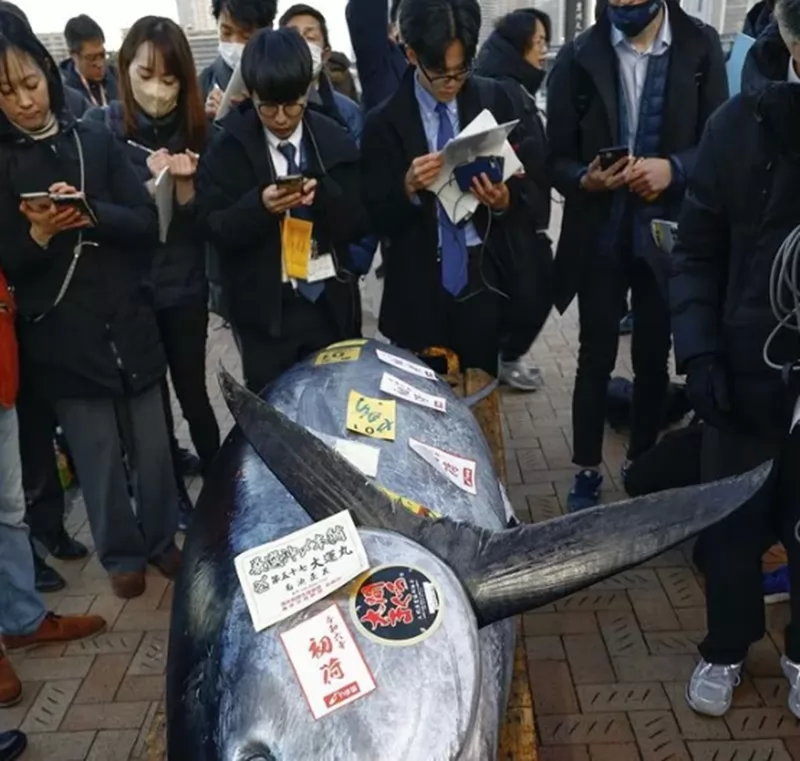Organic farmers faces challenges due to a lack of stable market

Nguyễn Văn Chung, a farmer from Thanh Hóa Province's Thạch Thành District, collects 3,000 tonnes of fertiliser from raising earthworms, the main source of organic fertiliser for his orange and pomelo crops. Photo nongnghiep.vn
HÀ NỘI — While the demand for organic agricultural products is increasing, farmers in Việt Nam are struggling to sell and get a decent price for their produce.
Nguyễn Văn Chung, owner of Chung Thủy Farm in Thanh Hóa Province's Thạch Thành District, is an example.
Chung's family now has 73 hectares of organic farm land.
His farm is certified to meet Global Good Agricultural Practice (GlobalGAP) standard, which means he is eligible to export to European countries and other demanding markets.
According to Chung, fertilisers and pesticides are the two decisive factors for organic agriculture. Fertilisers must be of organic origin and pesticides must be of biological origin and not harmful to the environment. It’s a must to follow strict procedure while caring for the plants.
Chung now has 6,000 square metres dedicated to raising earthworms (Perionyx excavates). Each year he collects 3,000 tonnes of fertiliser - the main source of organic fertiliser for his orange and pomelo crops.
Besides earthworm fertiliser, he also uses soybeans, corn and fish which were ground into flour, together with bio-products to provide nutrients for plants, he said.
He makes homemade pesticide by combining crushed garlic and chili with Chinaberry tree leaves to get rid of insects.
“The greatest benefits of organic farming is to ensure the safety of agricultural products and minimise the impact on the environment as well as having high yield potential.
"The plants grow healthy and their harvesting cycle is longer than traditional farming,” Chung said.
Thanks to the adoption of organic farming, he has continuously harvested orange trees with a yield of 60 tonnes per hectare per year over the past five years. He said the productivity might be up to 80-90 tonnes.
“Organic fertiliser helps plant roots be healthy and penetrate deep into the ground to absorb necessary nutrients. Earthworms and sea fish are high protein sources that provide essential nutrients to ensure crop productivity."
Challenges
Although it is costly to produce and requires strict management in all processes, organic products are still undervalued.
“All of our products are bought by traders who transport to the wholesale market but no company signs contracts with us in distributing agricultural products in a sustainable way,” Chung said, adding that each year his farm supplied 800-1,000 tonnes of fruits a year to the market.
Currently, orange is sold at VND14,000-15,000 per kg (about US0.60 cents) – the same as the average market price.
This means farmers like him get little profit or just enough to cover the expense for production.
Chung said other organic producers were in similar situation.
Despite obtaining GlobalGAP standards, all products cultivated in the locality are not on sale at supermarkets, plus it’s not easy to export to foreign markets.
In theory, organic agricultural products ensure benefits for both producers and consumers in the long term, but in the short term farmers are suffering losses.
“It’s more difficult to wipe out insects and harmful organisms without using pesticides, so farmers have to be more diligent to keep the plants healthy.
“Because we can’t find sustainable outlets for our products at the moment, we have to sell them to traders at the same price as non-organic products on the market,” he said, blaming consumers for low awareness of organic products.
Profits from organic agricultural production were not as high as expected, Chung said.
Cao Văn Cường, director of Thanh Hóa Province Agriculture and Rural Development said in order for organic agriculture to thrive, it was vital to strengthen activities relating to branding, market development and promotion of organic products. Focus should be on domestic market and exporting the products to foreign markets.
The province would drastically enforce the provisions of the Law on Product and Goods Quality and Law on Standards and Technical Regulations in the production, processing, certification and supervision as well as the sale of organic agricultural produce.
"Thanh Hóa will continue to improve institutions and policies to encourage the development of organic agriculture and increase the application of biotechnology in the production,” he said.
The use of varieties with high yield as well as resistant to pests and diseases and adapt to climate change would be encouraged.
Cường said in the future, Thanh Hóa Province would intensify dissemination about organic farming to raise awareness for businesses, producers and consumers about the compliance of organic agricultural production processes.
Information on how to select the key products which are suitable to local natural conditions would also be provided, he said. — VNS
Maybe you are interested

Bà Rịa - Vũng Tàu farmers expand breeding of Pacific oysters
BÀ RỊA-VŨNG TÀU — More farmers in the southern province of Bà Rịa-Vũng Tàu are earning more income by breeding Pacific oysters in an environmentally friendly and sustainable way.

3D turkey gut model created to fight blackhead disease
Hopes are growing that the creation of the first 3D turkey gut model could be a turning point in the battle against the virulent blackhead disease.

This 525-pound bluefin tuna just sold for nearly $800,000 at Tokyo's new year'saAuction
It's the highest price paid for a fish at the annual sale since the pandemic began.





